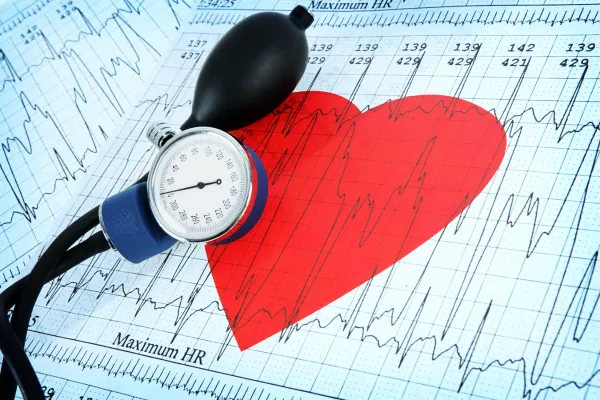
The Silent Killer Why You Shouldn’t Ignore High Blood Pressure
High blood pressure, also known as hypertension, is a condition that affects millions of people worldwide. Often referred to as the "silent killer," it can quietly cause damage to your body over time without showing any noticeable symptoms. By the time signs do appear, the damage may already be severe.
This blog explores why high blood pressure is dangerous, who is at risk, and most importantly, how you can take control of your heart health starting today.
Understanding High Blood Pressure
High blood pressure occurs when the force of your blood pushing against the walls of your arteries is consistently too high. Blood pressure is measured in two numbers:
Systolic Pressure (top number): The force when your heart pumps blood out.
Diastolic Pressure (bottom number): The force when your heart is at rest between beats.
A reading of 120/80 mmHg is considered normal, while consistent readings above 130/80 mmHg indicate hypertension.
The problem? Hypertension doesn't usually cause noticeable symptoms. This is why it often goes undiagnosed until it leads to a serious complication, such as heart disease, stroke, or kidney damage.
Why High Blood Pressure Is Called the Silent Killer
The nickname "silent killer" is no exaggeration. Hypertension can cause extensive damage over time while flying completely under the radar. Here’s what makes it so dangerous:
Heart health is compromised as the heart must work harder to pump blood, leading to an enlarged heart and, over time, heart failure.
Artery damage occurs due to the consistent high force of blood, which can cause the arteries to become less elastic and more prone to blockages.
Organ damage is a risk, particularly to the brain, kidneys, and eyes, due to reduced blood flow and oxygen.
By the time symptoms like severe headaches, nosebleeds, or shortness of breath make their appearance, it could mean that the condition has progressed.
Risk Factors for High Blood Pressure
Some factors make you more likely to develop hypertension. These include:

Age: The risk increases as you age.
Genetics: A family history of hypertension puts you at greater risk.
Lifestyle factors such as a poor diet (high sodium, low potassium), lack of exercise, and being overweight or obese.
Stress and unhealthy habits like tobacco use and excessive alcohol consumption also play a significant role.
The Health Consequences of Untreated Hypertension
Leaving hypertension unmanaged can have devastating health impacts, including:
Heart attack or stroke from blocked or narrowed arteries.
Heart failure due to the constant strain on your heart.
Kidney disease or failure caused by reduced kidney function over time.
Vision problems due to damage to the tiny blood vessels in your eyes.
Aneurysm formation, which can rupture and be life-threatening.
How to Lower Your Blood Pressure Naturally
The good news is that hypertension is both preventable and manageable. Here’s how you can take control:
1. Improve Your Diet
Follow a heart-friendly diet such as the DASH diet (Dietary Approaches to Stop Hypertension). Focus on:
Fruits and vegetables.
Whole grains.
Lean proteins.
Low-fat dairy products.
Reduce your intake of salt, saturated fats, and trans fats.
2. Stay Active
Engaging in at least 150 minutes of moderate exercise each week can significantly lower your blood pressure. Walking, swimming, cycling, or even yoga are excellent options.
3. Quit Smoking and Limit Alcohol
Smoking damages your blood vessels, and excessive alcohol can elevate your blood pressure. Seek support if you need help quitting or cutting back.
4. Manage Stress
Stress can indirectly lead to high blood pressure by promoting unhealthy habits like overeating or smoking. Practice meditation, mindfulness, or deep breathing techniques to relieve stress.
5. Monitor Your Blood Pressure
If you’re at risk, invest in a home blood pressure monitor. Regular tracking can help you stay on top of your health and alert you to any changes.
What If Lifestyle Changes Aren’t Enough?
Sometimes lifestyle modifications alone may not be enough to control high blood pressure. Luckily, there are effective treatments available. Common medications for hypertension include:
Diuretics to help eliminate excess salt and water from your body.
Beta blockers and ACE inhibitors, which help ease the workload on your heart.
Calcium channel blockers that help relax narrowed blood vessels.
Speak with a healthcare provider about the most suitable treatment options for you.

Why You Should See a Cardiologist
If your blood pressure remains elevated despite your efforts or if you have other risk factors like diabetes or a family history of heart disease, it’s essential to consult a cardiologist. Specialists can:
Provide in-depth assessments.
Tailor treatment plans specifically to your needs.
Monitor your progress and adjust your treatment if necessary.
A Healthier Heart Starts Today
High blood pressure doesn’t have to control your life. With the right awareness, changes, and support, you can take charge of your health and reduce the risk of complications.
At Premier Cardiology of Vero Beach, we specialize in personalized hypertension care, offering both concierge and non-concierge services. Whether you’re focused on prevention or managing existing hypertension, we are here to guide you every step of the way.
📞 Schedule Your Meet and Greet with Dr. Vik Gogidi Today
Call us at (772) 494-0794
🌐 Visit us at www.premiercardiologyvb.com
Your first step to a healthier heart could begin today.

Dr. Vik Gongidi
